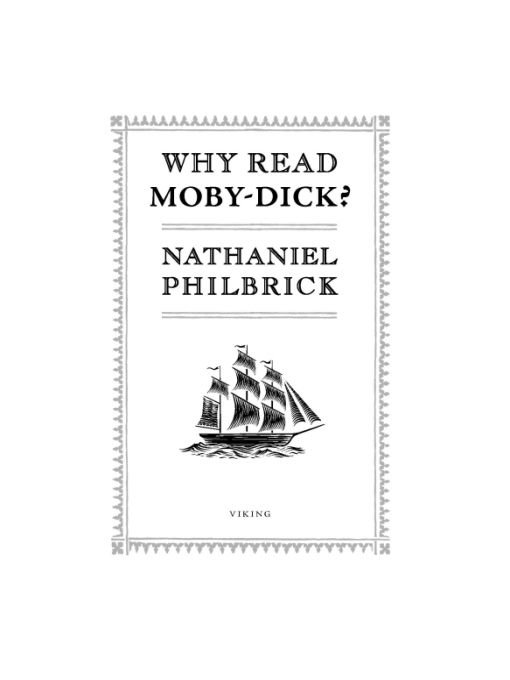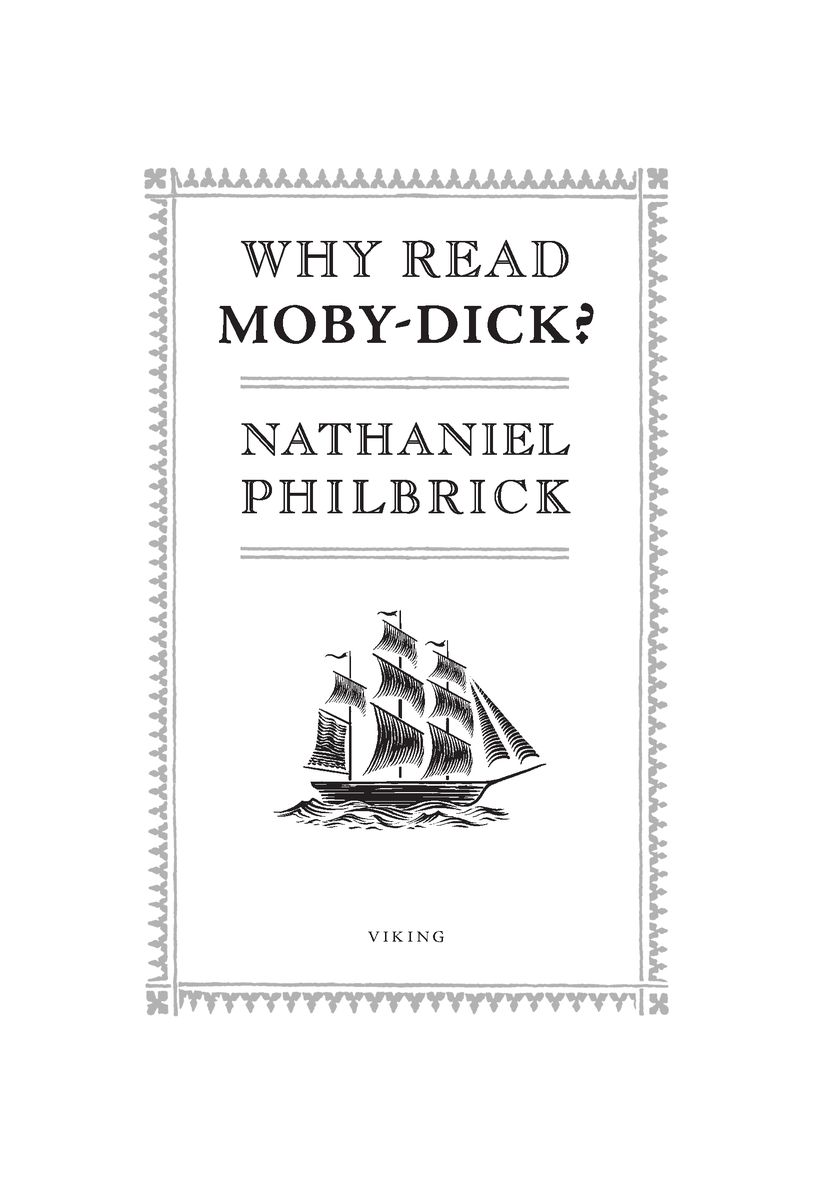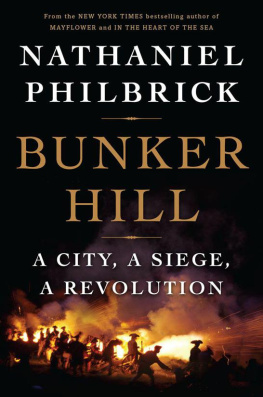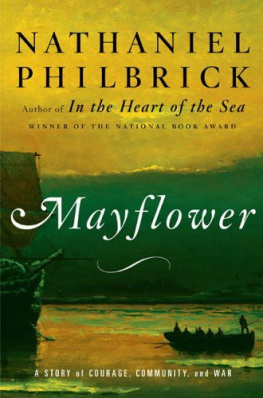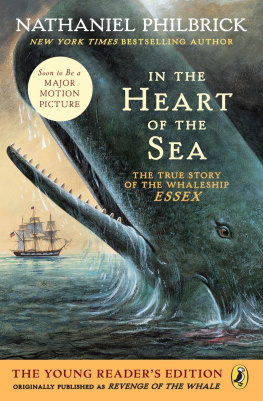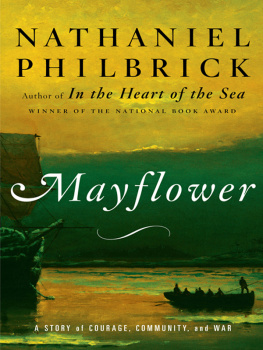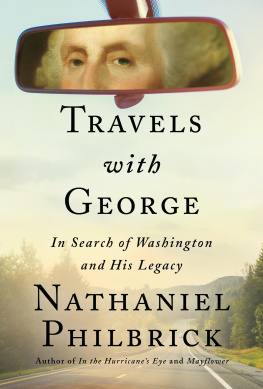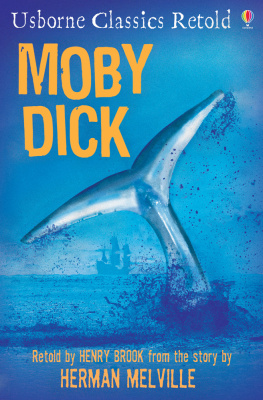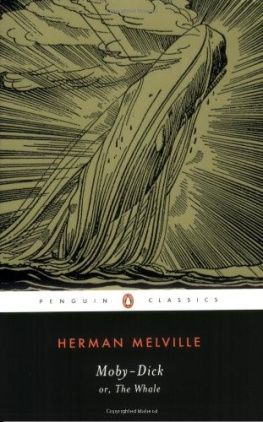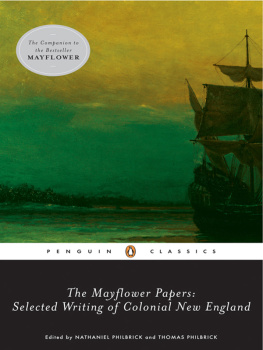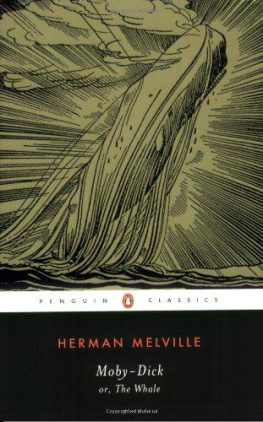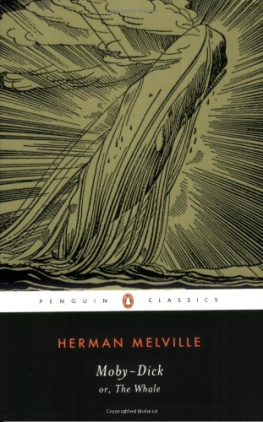Table of Contents
ALSO BY NATHANIEL PHILBRICK
The Last Stand
Mayflower
Sea of Glory
In the Heart of the Sea
Away Off Shore
To Melissa
The Gospels in This Century
Early in the afternoon of December 16, 1850, Herman Melville looked at his timepiece. He was in the midst of composing the novel we now know as Moby-Dick. At that moment he was writing about how for thousands, even millions of years whales have been filling the atmosphere over the waters of the Pacific with the haze of their spoutssprinkling and mystifying the gardens of the deep. It was then that he decided to record the exact time at which he was writing these words about whale spouts: fifteen and a quarter minutes past one oclock P.M. of this sixteenth day of December, A.D. 1850.
When Moby-Dick was eventually published in November of the following year, the date in this passage was changed from 1850 to 1851. But that is no matter. The fact remains that in this tiny chapter, titled The Fountain (the 85th in a novel that would eventually extend to 135 chapters), Melville did something outrageous. He pulled back the fictive curtain and inserted a seemingly irrelevant glimpse of himself in the act of composition.
Ive now read Moby-Dick at least a dozen times, and this reference to a specific time and day in December remains my favorite part of the book. Whenever I come upon that sentence, I feel as if I am there, with Melville, as he creates the greatest American novel ever written.
In December 1850, Melville was just thirty-one years old. A few months earlier hed decided to move his family from New York City to the Berkshires in western Massachusetts, the temporary home of his new literary idol, Nathaniel Hawthorne. Melville was already the father of a baby boy named Malcolm; in October of the following year his wife, Elizabeth, gave birth to a second son, Stanwix.
His literary career had begun in spectacular fashion four years before with Typee, a bestseller about his adventures in the South Seas. But Melville quickly learned that success guarantees nothing and in fact turns the future into an endless quest to measure up to the past. As each subsequent book failed to equal Typees sales, and with his financial responsibilities mounting (his household often included his widowed mother and his sisters), Melville began to worry about the future. Dollars damn me... , he confided to Hawthorne. Though I wrote the Gospels in this century, I should die in the gutter.
From the second-floor study of the farmhouse he purchased and renovated with loans from his father-in-law and a family friend, he could see nearby Mount Greylock. When the snow blanketed the surrounding fields that winter, Melville claimed to enjoy a sort of sea-feeling. But as he worked with an increasing, Ahab-like frenzy on his book about the maimed captain and his pursuit of the White Whale, the omnipresent sea-feeling was anything but a comfort. My room seems a ships cabin, he wrote to a literary friend, & at nights when I wake up & hear the wind shrieking, I almost fancy there is too much sail on the house, & I had better go on the roof & rig in the chimney.
Once seated at his desk each morning, he was literally consumed by his story, sometimes working past four oclock in the afternoon without pausing to eat. When exhaustion finally forced him to stop, he spent the evening sitting listlessly amid his extended family in what he described as a sort of mesmeric state. Not only was he drawing upon his own experiences in the Pacific, he was also immersing himself in scientific treatises and narratives associated with the whale fishery. Most important, his recent and omnivorous reading of Shakespeare, Milton, Virgil, and others meant that the voices of these writers were as fresh and accessible to him as anything he might read in a newspaper or magazine.
In 1850 the United States was in the midst of pushing its way west across the full three-thousand-mile breadth of the North American continent. Railroads had begun to knit together the interior of the nation into an iron tracery of ceaseless, smoke-belching movement. Steamboats ventured up once-inaccessible rivers. With the winning of the Mexican War in 1848, Americas future as a bicoastal nation was sealed. When word reached the East Coast that gold had been discovered earlier that year in California, thousands upon thousands of prospectors quickly made that future an accomplished fact.
But there was a problem with this juggernaut: a lie festered at the ideological core of the then-thirty states of America. Even though its founders had promised liberty and freedom for all, the southern half of the country was economically dependent on African slavery. Ever since the signing of the Declaration of Independence, the issue had been gnawing at the heart of America, and now, after decades of avoidance and evasion, it was becoming clear that the nation was headed for a crisis. With the passage of the Fugitive Slave Act in 1850, which required that escaped slaves found anywhere in the United States be handed over to the authorities, slavery was no longer just a Southern problem. All Americans, both above and below the Mason-Dixon Line, were now legally bound to the institution of slavery. Antagonisms that had lain dormant for decades could no longer be contained, and an eruption of terrible violence appeared inevitable. Despite all its brilliant successes, America was on the verge of a cataclysm.
To be an American writer in 1850 was to be part of a young, still tentative literary tradition. Washington Irving and James Fenimore Cooper were approaching the ends of their careers, while the poet William Cullen Bryant was one of the most influential literary figures of the time, thanks, in large part, to his position as editor of a leading New York City newspaper. Before his death in 1849, Edgar Allan Poe had pronounced the now-forgotten Southern novelist William Gilmore Simms immeasurably the best writer of fiction in America. In the meantime, the poet Henry Wadsworth Longfellow was well on his way to becoming the most popular and best-paid author in America.
But it was British writers such as Charles Dickens and Edward Bulwer-Lytton (known primarily today for beginning one of his novels with the immortal phrase It was a dark and stormy night) who were the most widely read in the United States. Cooper and Irving had managed to support themselves (sometimes just barely) through their writing, but they were very much the exceptions to the rule. The popular essayist and poet Ralph Waldo Emerson relied on his lecture fees to keep body and soul together, and even Nathaniel Hawthorne, whose Scarlet Letter had been selling briskly since its appearance in March of that year, had been employed, until just recently, as a surveyor at the customs house in Salem, Massachusetts. By purchasing a home in the wilds of western Massachusetts with the intention of supporting himself and his family on the income derived from a novel about, of all things, whaling, Melville was embarking on a quest as audacious and doomed as anything dreamed up by the captain of the Pequod.
To write timelessly about the here and now, a writer must approach the present indirectly. The story has to be about more than it at first seems. Shakespeare used the historical sources of his plays as a scaffolding on which to construct detailed portraits of his own age. The interstices between the secondhand historical plots and Shakespeares startlingly original insights into Elizabethan England are what allow his work to speak to us today. Reading Shakespeare, we know what it is like, in any age, to be alive. So it is with

